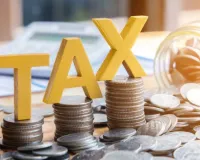Luxury Items Over ₹10 Lakh to Be Taxed: Full Details Inside

Now you will have to loosen your pocket more to buy luxury items. The government has imposed 1% TCS on luxury items worth more than Rs 10 lakh. If you buy goods worth Rs 30 lakh, the seller will charge Rs 30,000 tax. Know on which items tax has been imposed.
According to a notification of the Income Tax Department, handbags, watches, shoes and sportswear worth more than Rs 10 lakh will now attract 1% Tax Collected at Source (TCS). If you buy goods worth Rs 30 lakh, the seller will charge Rs 30,000 tax. From January 1, 2025, 1% TCS is already being levied on vehicles worth more than Rs 10 lakh. On Tuesday, the Income Tax Department has released their list.
On which things will it be imposed?
The list released on 22 April includes watches, paintings, statues, antiques, coins, tickets, pots, helicopters, luxury handbags, sunglasses, shoes, expensive sportswear, home theater systems and racing/polo horses.
When will it be implemented?
This rule was introduced in the Finance Act 2024 through the July 2024 budget. It has come into effect from 22 April 2025.
What to do?
Like TDS, the buyer can claim tax credit in FIR by taking the receipt of TCS. If the amount of TCS is more than your tax liability, then a refund can be obtained.
What is the TCS system?
TCS is collected from the buyer at the time of sale of goods and the buyer can adjust it from his tax liability while filing income tax return.
What is the purpose?
TCS does not give the government any extra money, but it helps the tax department to trace high-value expenses as PAN details have to be given at the time of purchase.
The provision of TCS on vehicles and luxury goods costing more than Rs 10 lakh was introduced through the Finance Act, 2024 as part of the budget presented in July 2024. According to Budget 2024, the expenditure of rich people on luxury goods is increasing, so this rule has been made to widen the tax net.
What do experts say?
Sandeep Jhunjhunwala, tax partner, Nangia Andersen LLP, says that the government intends to keep an eye on high-value entertainment expenditure and strengthen the audit trail in the luxury goods sector. Sellers will now have to comply with the TOS rules on time. Those buying luxury goods may have to provide more KYC documents at the time of purchase. Amit Madhwani, tax partner, AKM Global, says this will make it easier to track luxury expenses.









1.png)
.png)
1.png)
